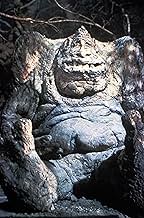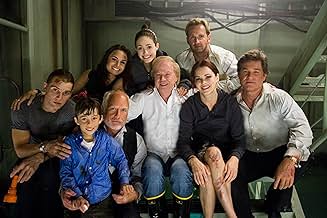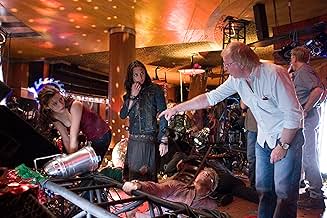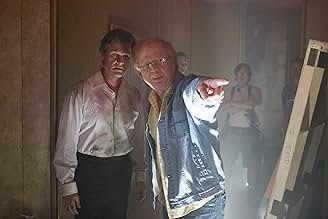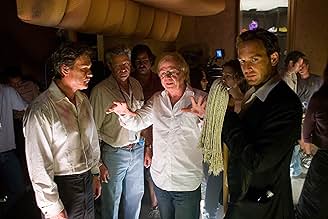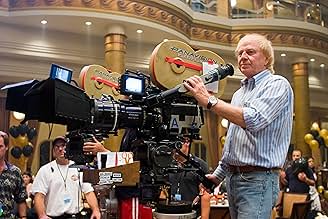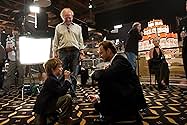Wolfgang Petersen(1941-2022)
- Director
- Writer
- Producer
A controversial film maker, Wolfgang Petersen has at once been lauded for his professionalism and attention to detail and decried for turning out a string of standard commercial Hollywood blockbusters. The son of a naval officer, Petersen held a lifelong fascination with the sea and naval subjects. He was born in Emden and attended drama school in Hamburg. Having already made some 8 mm films while at school, he proceeded to direct as well as act at the Junges Theater in Hamburg (later renamed the Ernst-Deutsch-Theater). In 1966, he joined the newly formed Deutsche Film- und Fernsehakademie Berlin (DFFB) where he made several short films while simultaneously directing plays in Hamburg. Having caught the eye of German television networks, Petersen went on to direct a string of TV movies which often dealt with such contentious issues as environmental pollution and underage sex. An early success and also his first cinematic release was the taut psychological thriller One or the Other (1974), which starred Jürgen Prochnow and Elke Sommer. This led to more regular assignments on the ever-popular detective series Tatort (1970) for which Petersen directed six episodes.
In 1980, Petersen was commissioned by Bavaria Studios to direct Das Boot (1981), based on a 1971 novel by Lothar G. Buchheim. Filmed on a budget of 32 million DM, it became the most realistic and harrowing portrayal of life aboard a submarine in wartime filmed to date, the action of 'Das Boot' being set during the battle of the North Atlantic and culminating in an abortive attempt to cross the British-controlled strait of Gibraltar into the Mediterranean. The film concluded with a bitterly ironic climax. 'Das Boot' (re-released as a miniseries in 1985) starred Petersen's long-standing collaborator Jürgen Prochnow (who became an international star as a result) and was nominated for six Academy Awards (including Best Director and Best Writing). In its wake, Petersen directed and co-wrote a children's fantasy --again filmed at the Bavaria facilities near Munich-- The NeverEnding Story (1984). Though successful at the box-office (especially in Germany), it did not attract universal critical appeal. By contrast, his second English-language film, the science fiction drama Enemy Mine (1985) was only a modest financial success but rated better in reviews over the years, the Los Angeles Times describing it as "surprisingly coherent, surprisingly enjoyable".
In 1987, Petersen moved to Santa Monica, California. For a while, he was part of an A-list of directors tasked with helming mega-budget blockbusters starring big name actors like Clint Eastwood, Harrison Ford, George Clooney and Brad Pitt. Most were palpable box-office hits, especially In the Line of Fire (1993) (often cited as his best Hollywood enterprise), Air Force One (1997) and the historical epic Troy (2004), which grossed $497.4 million worldwide. Reviewer reception for Troy tended to be lukewarm to cool, even more so with the disaster movies Outbreak (1995) and The Perfect Storm (2000), the latter criticized as suffering from "a lack of any actual drama or characterization". Attracting even lower critical esteem was Petersen's remake of Irwin Allen 's original 1972 disaster movie, Poseidon (2006). It ended up both a box office and a critical flop in the U.S. with only the superior CGI special effects gaining plaudits. Poseidon was nominated for the Golden Raspberry Award for Worst Remake. Following this debacle, Petersen withdrew from Hollywood and had a decade-long hiatus before directing his final picture, the German heist drama Four Against the Bank (2016).
Petersen's second wife was the assistant director and script supervisor Maria-Antoinette Borgel with whom he had a son. Petersen died from pancreatic cancer on August 12 2022 in Brentwood, California.
In 1980, Petersen was commissioned by Bavaria Studios to direct Das Boot (1981), based on a 1971 novel by Lothar G. Buchheim. Filmed on a budget of 32 million DM, it became the most realistic and harrowing portrayal of life aboard a submarine in wartime filmed to date, the action of 'Das Boot' being set during the battle of the North Atlantic and culminating in an abortive attempt to cross the British-controlled strait of Gibraltar into the Mediterranean. The film concluded with a bitterly ironic climax. 'Das Boot' (re-released as a miniseries in 1985) starred Petersen's long-standing collaborator Jürgen Prochnow (who became an international star as a result) and was nominated for six Academy Awards (including Best Director and Best Writing). In its wake, Petersen directed and co-wrote a children's fantasy --again filmed at the Bavaria facilities near Munich-- The NeverEnding Story (1984). Though successful at the box-office (especially in Germany), it did not attract universal critical appeal. By contrast, his second English-language film, the science fiction drama Enemy Mine (1985) was only a modest financial success but rated better in reviews over the years, the Los Angeles Times describing it as "surprisingly coherent, surprisingly enjoyable".
In 1987, Petersen moved to Santa Monica, California. For a while, he was part of an A-list of directors tasked with helming mega-budget blockbusters starring big name actors like Clint Eastwood, Harrison Ford, George Clooney and Brad Pitt. Most were palpable box-office hits, especially In the Line of Fire (1993) (often cited as his best Hollywood enterprise), Air Force One (1997) and the historical epic Troy (2004), which grossed $497.4 million worldwide. Reviewer reception for Troy tended to be lukewarm to cool, even more so with the disaster movies Outbreak (1995) and The Perfect Storm (2000), the latter criticized as suffering from "a lack of any actual drama or characterization". Attracting even lower critical esteem was Petersen's remake of Irwin Allen 's original 1972 disaster movie, Poseidon (2006). It ended up both a box office and a critical flop in the U.S. with only the superior CGI special effects gaining plaudits. Poseidon was nominated for the Golden Raspberry Award for Worst Remake. Following this debacle, Petersen withdrew from Hollywood and had a decade-long hiatus before directing his final picture, the German heist drama Four Against the Bank (2016).
Petersen's second wife was the assistant director and script supervisor Maria-Antoinette Borgel with whom he had a son. Petersen died from pancreatic cancer on August 12 2022 in Brentwood, California.

